“Here we see the majestic nosework terrier in her natural element. Note the brightly colored plumage, the backward wind up followed by explosive forward movement in conjunction animated screaming of the primate this terrier as chosen to communicate the delivery of the liver of a deceased bovine, carefully dried and preserved by the well-trained primate…”
All kidding aside, I came to this particular nosework trial with a specific goal: enthusiastic and energetic starts that lead to confident and motivated searches, which were to conclude with an exciting celebration that continued to the next search. I can honestly say I had no thought of awards, titles or glory – not even the super secret kind that you bury deep down. I had honest and realistic expectations of our abilities. We had systematically developed the skill and stamina to continually search ever changing environments. This goal was an important milestone, part of a long-term progression of relationship rebuilding in competition dog sports.
Isabella didn’t just find the thing. She worked puzzles. She was confident and happy. She told me where to go and how to get there. She trusted me to keep her safe, provide support and make the magic cookie call. She literally ignored her greatest concern in dog sports: humans in HER work area. She came away with two pronounced and some speedy times. These were very nice things of course. But the most important thing to me was that even after the last search of the day, she asked for more. This competition was fun. We were fun. WE WERE A TEAM. That was the goal.
When we develop skills for a sport, we look at our amazing canine teammate and see all the incredible things we can accomplish together. We see all the shiny things…the new titles, the fancy ribbons, the brightly embossed certificates to hang on the wall as a testament of that teamwork. We see that we may be the first of something. We see a national champion in the making. We see brilliance and perfect scores. All things are possible. And then we run into a little hiccup or a great big obstacle that seems insurmountable. The reality is that the road to achievement isn’t always going to be smooth sailing. There’s always a bump here or there and often, we’re going to work very hard on the journey to achieving those goals.
How do we get there from here? Let’s start with patience, practice, persistence, realistic expectations and the love of the game with the best dog in the world.
Patience
Whether working with a new puppy or polishing up teamwork with a seasoned veteran, I find myself repeating over and over again, “Slow down. Don’t be in such a hurry.” Take time to put together a training plan for each training session. Prepare your training environment before bringing your teammate into the area. Focus on a training progression for each behavior or skill that is appropriate to your team’s individual ability. New skills are so much fun. They are bright and shiny and new. Don’t skip steps. In the moment, it may seem like the step isn’t needed because of course our dog is brilliant (they are!) but in the long term, we often find ourselves revisiting the steps we missed. Remember that it takes far longer to resolve a training issue than it does to create it. Keep the big picture in mind, but split behaviors into small pieces. Take the time to develop fluency in each behavior. Training isn’t a sprint, it’s a marathon. Your team is in it for the long haul. Practice patience.
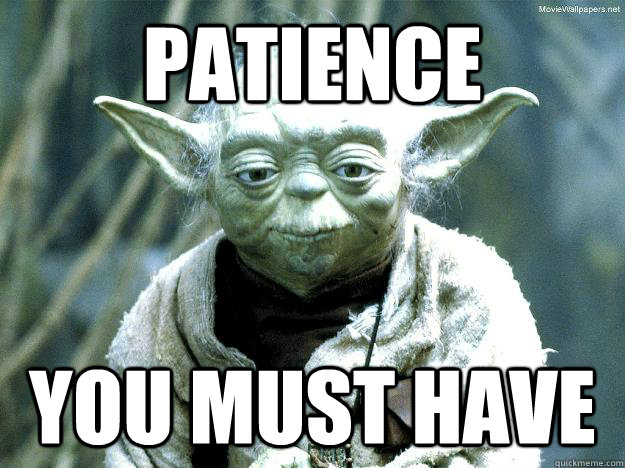
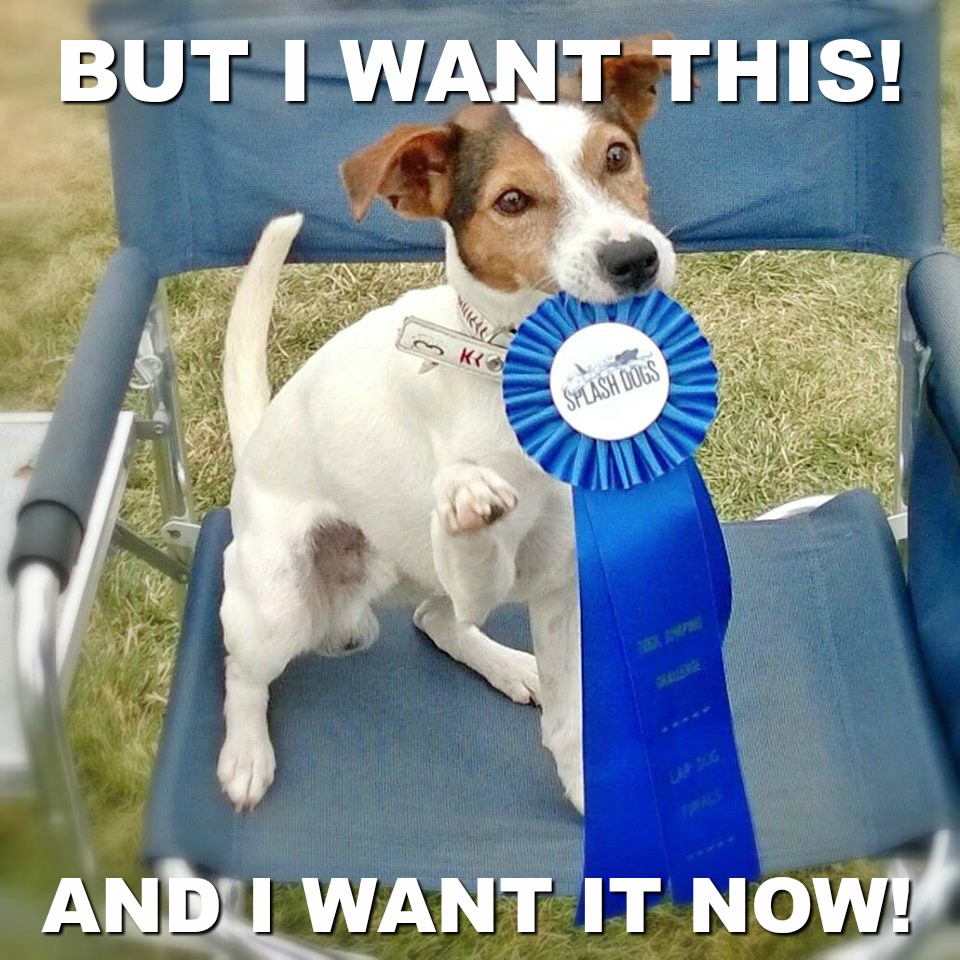
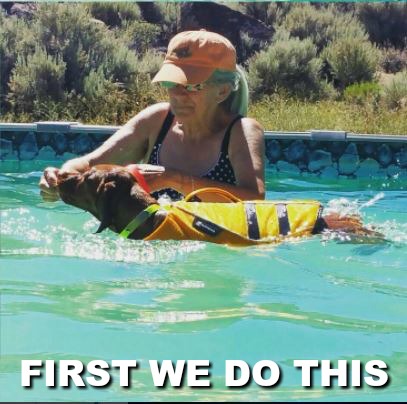
Practice Makes Progress
Note that I said progress than not perfection. We are imperfect beings. Neither you nor your dog are a machine. I know you already have the end goal in mind, but to progress toward that goal take a moment to develop a training plan with realistic goals and milestones along the way. This enables you to see the progress your team is making and identify where you may have some additional work to do. From my background in corporate finance, I choose SMART goals for my own planning, that is goals that are Smart, Measurable, Attainable, Relevant and Time-bound although in training dogs, instead of Time-bound I use Progress-bound. SMARP goals doesn’t sound quite as sexy. Here are a few resources for goal setting:
- Bradley Foster: How to Set a Goal
- Oregon State University: Goal Setting
- Susan Garrett: Setting Goals is Easy…Accomplishing Them?
Most importantly, put in the time to practice and learn to recognize and celebrate progress.
Persistence
Don’t give up. Steady and consistent progress isn’t a realistic expectation. Setbacks will happen. They may be small. They may be huge. One of the worst things a driver can do behind the wheel of a car is to over correct. The same is true in dog training. Avoid knee jerk reactions. Don’t throw everything including the kitchen sink at a problem. Take a deep breath and then take the time to objectively evaluate the setback. Ask for help from qualified individuals either know your team or will take the time to learn about you and your dog as an individual team. Setbacks can be incredible learning opportunities. They can make us a better trainer, handler and teammate. Amazing progress will also happen and when it does, you will enjoy those moments even more.
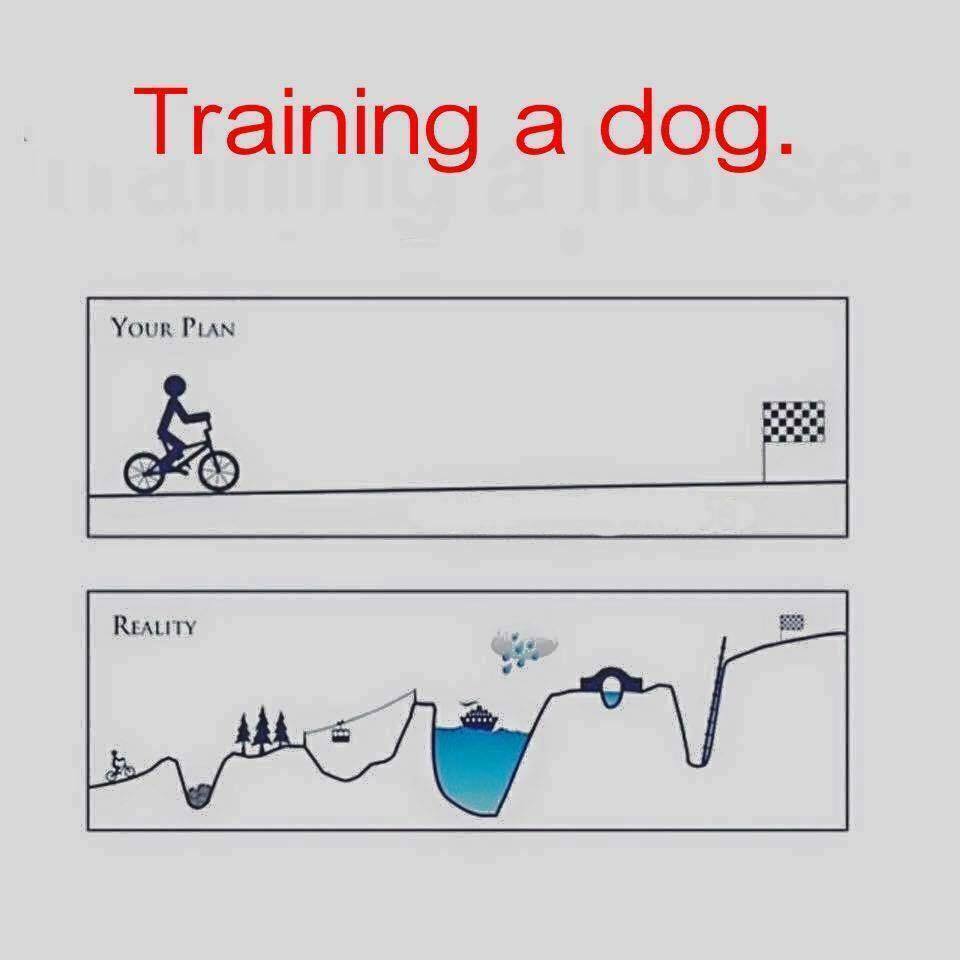
Remember this: There is no hard and fast rule for exactly how you and your dog will get from A to Z. The experience is different for each team. It is a disservice to both you and your dog to measure your progress against others. Celebrate the accomplishments of others. Celebrate your team’s accomplishments. Those accomplishments need not be measured only in Q’s, titles, awards and ribbons.
Maintain Realistic Expectations
We wouldn’t walk a 4-month-old puppy into the agility ring and expect her to be able to run a flawless masters course in front of an arena of people and dogs away from home. We know that the puppy needs time to physically develop and grow. We know that the puppy needs to see the world, develop confidence, focus and engagement. We know that the puppy needs to develop a specific set of skills. No matter how many dogs we have had the opportunity to handle, as the puppy’s handler we need to develop skills with her. So very many skills.
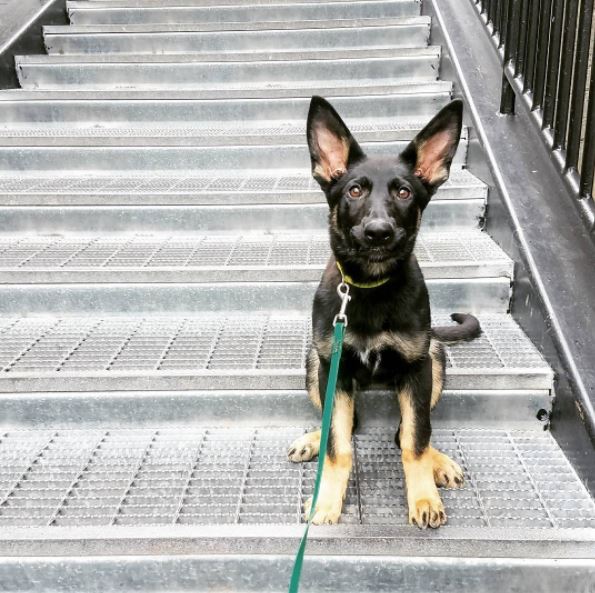
Joy, confidence and growing focus. Foundation skills for a future working dog.
Consider your canine teammate at this moment. What are your performance expectations? Does your team have the skills to meet those expectations? If so, go out there an have fun. If not, take a moment to honestly and openly evaluate where you are as a team. Where do you want to go? What are the steps to get there? Whether you are deciding whether to enter your dog in a trial for the first time or considering whether to move to the next phase of training, do you very best to maintain realistic expectations. Be brave and try, but be prepared for all the possible outcomes. Do you very best not to over face your team. Learn from every experience. Take a step back when needed. Understand your team’s limits and work within them while at the same time working to expand them. Be fair to yourself. Be fair to your dog.
Enjoy the Moment
It is my hope for each of you that you have had the opportunity to be loved by a dog and to love that dog for the unique and wonderful creature he or she is at this very moment. This is YOUR dog and there is no other dog like him. You are HIS human and there is no other human like you. There is so much more to life than 90 seconds of ring time. Whether you are on the training field or sitting on the couch together, enjoy each moment.
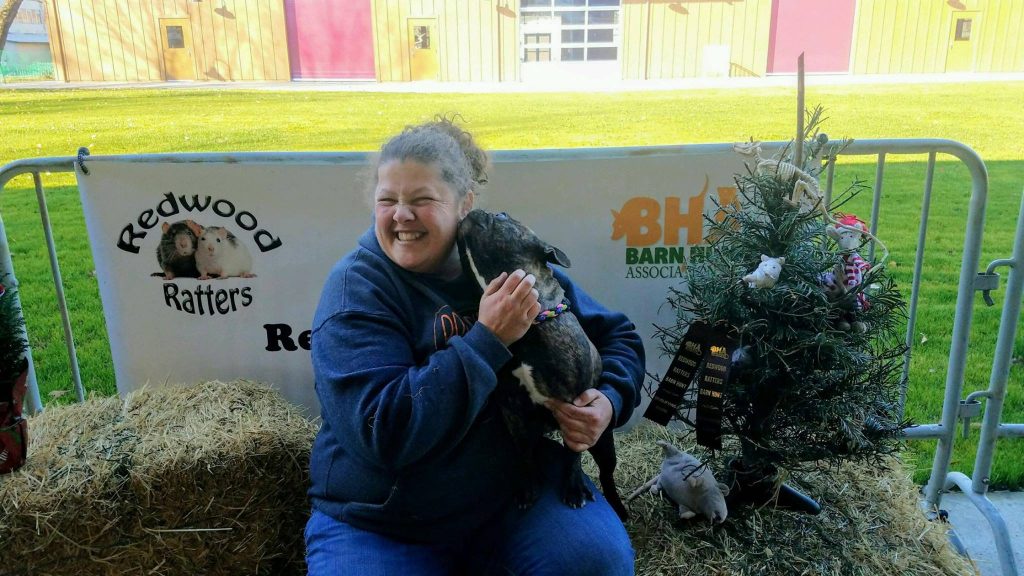
Written by Liz Carter
Copyright 2017. All Rights Reserved. This article may be shared in its entirety with credit given to the author and Revolution Dog Sports
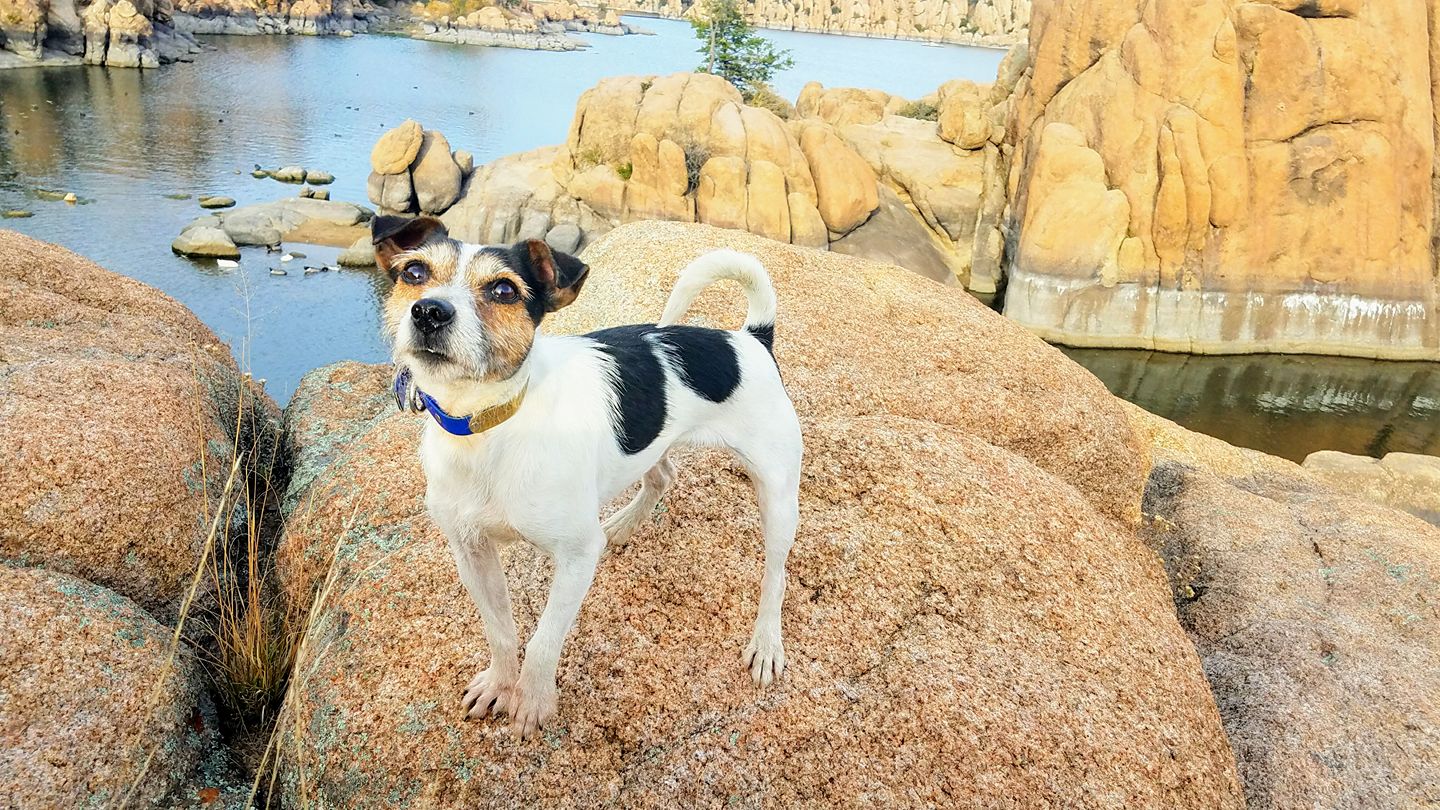
EXCELLENT article. Thank you
Enjoyed this article/essay!